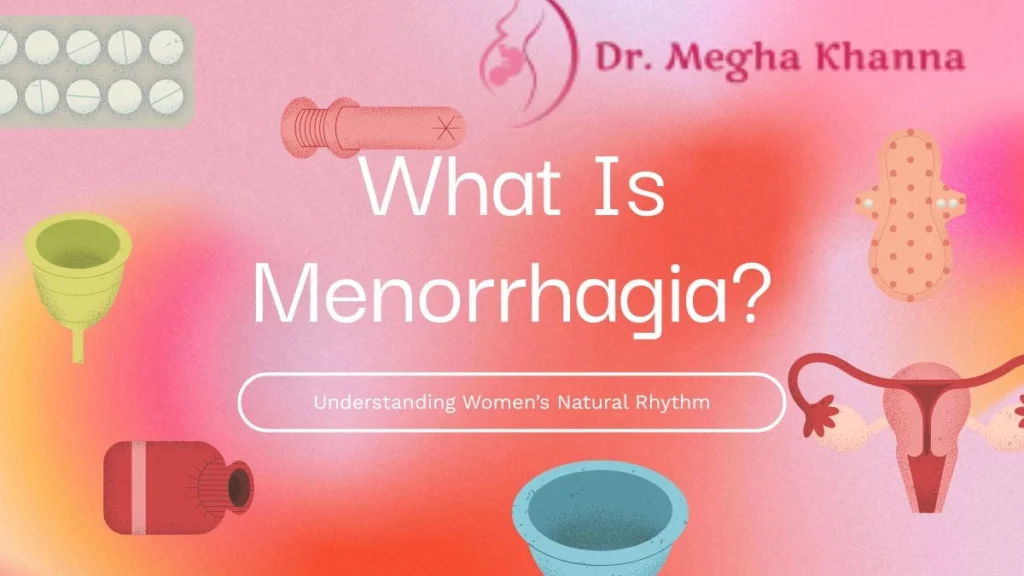-
Ganesh Talkies, Kolkata
Ganesh Talkies, Kolkata

Admin
31.12.2025
Hello Reader! Welcome to the blog page of Dr. Megha Khanna, one of the best lady gynecologist in Kolkata. Uterine fibroids are one of the most common gynecological conditions affecting women of reproductive age. While many fibroids remain asymptomatic, some can cause heavy menstrual bleeding, pelvic pain, pressure symptoms, infertility, or recurrent pregnancy loss. In such cases, myomectomy surgery is often recommended as an effective treatment option that removes fibroids while preserving the uterus. As the best lady gynecologist in Kolkata, I believe in educating women so they can make informed decisions about their health. This blog explains how myomectomy surgery is performed, the different techniques used, and what patients can expect before and after the procedure. What Is Myomectomy Surgery?Who Needs Myomectomy Surgery?Types of Myomectomy Surgery1. Abdominal (Open) Myomectomy2. Laparoscopic Myomectomy3. Robotic-Assisted Myomectomy4. Hysteroscopic MyomectomyPreoperative Preparation for Myomectomy SurgeryWhat Happens During the Surgery?Recovery After Myomectomy SurgeryFertility and Pregnancy After Myomectomy SurgeryRisks and ComplicationsWhat are the types of myomectomy surgery, and when to choose each?Open Abdominal MyomectomyLaparoscopic MyomectomyHysteroscopic MyomectomyRobotic-Assisted MyomectomyChoosing the Right Myomectomy SurgeryWhat are the risks and complications of myomectomy surgery?Common Intraoperative RisksPostoperative ComplicationsLong-Term ConcernsMitigation StrategiesHow to prepare a patient before myomectomy surgery?Medical Evaluation and TestsDietary and Lifestyle AdjustmentsPractical and Emotional PreparationDay-of-Surgery ProtocolsWhat is the typical recovery timeline after myomectomy surgery?Hysteroscopic Myomectomy RecoveryLaparoscopic or Robotic Myomectomy RecoveryOpen Abdominal Myomectomy RecoveryGeneral Milestones and TipsFAQ1. What is myomectomy surgery?2. How is myomectomy surgery performed?3. What type of anesthesia is used during myomectomy surgery?4. How long does recovery take after myomectomy surgery?5. Can fibroids return after myomectomy surgery?Why Choose the Best Lady Gynecologist in Kolkata for Myomectomy Surgery?Final Thoughts What Is Myomectomy Surgery? Myomectomy surgery is a surgical procedure aimed at removing uterine fibroids (also called myomas) while keeping the uterus intact. It is especially preferred for women who wish to preserve fertility or want to avoid hysterectomy. Unlike uterus removal, myomectomy surgery focuses only on fibroids, allowing women to maintain normal hormonal function and reproductive potential. Who Needs Myomectomy Surgery? Myomectomy surgery may be advised if you experience: Heavy or prolonged menstrual bleeding Severe pelvic pain or pressure Difficulty conceiving due to fibroids Recurrent miscarriages linked to fibroids Rapidly growing fibroids Pressure on the bladder or bowel Consulting the best lady gynecologist in Kolkata ensures accurate diagnosis and personalized treatment planning. Types of Myomectomy Surgery The method of myomectomy surgery depends on the size, number, and location of fibroids, as well...

MeghaKhanna
30.12.2025
Introduction: A Safer, Smarter Way to Remove Fibroids Uterine fibroids affect a large number of women during their reproductive years and can significantly impact quality of life, fertility, and overall well-being. Today, minimally invasive surgery has transformed fibroid treatment, making recovery faster and outcomes better. For women seeking expert care from a Laparoscopic Myomectomy surgeon in Kolkata and guidance from the best lady gynecologist in Kolkata, laparoscopic myomectomy has emerged as a preferred, uterus-preserving option. This comprehensive, question-based guide explains the benefits of choosing laparoscopic myomectomy for fibroid removal, how it works, who it is suitable for, and why expertise matters—curated for patients of Dr Megha Khanna, a trusted name in women’s health and minimally invasive gynecological surgery. Introduction: A Safer, Smarter Way to Remove FibroidsBenefits of Choosing Laparoscopic Myomectomy for Fibroid Removal: What Do Women Want to Know?1. What Is Laparoscopic Myomectomy?A Modern, Minimally Invasive Fibroid Surgery2. Why Do Women Need Fibroid Removal?Common Symptoms of Uterine Fibroids3. How Is Laparoscopic Myomectomy Different from Open Surgery?Key Differences at a Glance4. What Are the Major Benefits of Laparoscopic Myomectomy?1. Minimally Invasive Approach2. Faster Recovery3. Less Blood Loss4. Shorter Hospital Stay5. Minimal Scarring6. Is Laparoscopic Myomectomy Safe?Safety Depends on ExpertiseReduced Risk of:7. Who Is an Ideal Candidate for Laparoscopic Myomectomy?Suitable Candidates Include Women Who:8. What Types of Fibroids Can Be Removed Laparoscopically?Commonly Treated Fibroids9. How Long Does the Surgery Take?Procedure Duration10. What Is the Recovery Process Like?Post-Surgery Recovery Timeline11. Pain Management After Laparoscopic MyomectomyLess Pain, Better Comfort12. Does Laparoscopic Surgery Reduce Complications?Yes, Compared to Open Surgery13. Can Fibroids Come Back After Surgery?Recurrence Is Possible, But…14. Laparoscopic Myomectomy vs Hysterectomy: Which Is Better?Comparison Table15. Role of Surgeon Expertise in OutcomesWhy Experience Matters16. Emotional & Psychological BenefitsBeyond Physical Healing17. Cost-Effectiveness in the Long Run18. Preparing for Laparoscopic MyomectomyPre-Surgery Checklist19. Post-Surgery Care TipsFor Smooth Recovery20. Why Choose Dr Megha Khanna?Trusted Women’s Health SpecialistFinal Thoughts: A Modern Solution for Fibroid CareFAQs What is the biggest benefit of laparoscopic myomectomy?Is laparoscopic myomectomy safe for future pregnancy?How long does recovery take?Will fibroids return after surgery?Who is a good candidate for laparoscopic myomectomy? Benefits of Choosing Laparoscopic Myomectomy for Fibroid Removal: What Do Women Want to Know? 1. What Is Laparoscopic Myomectomy? A Modern, Minimally Invasive Fibroid Surgery Laparoscopic myomectomy is a surgical procedure that removes uterine fibroids while preserving the uterus, using: Small keyhole incisions A laparoscope (thin camera) Advanced surgical instruments Unlike open surgery, this technique minimizes trauma...

Admin
24.12.2025
Hello Reader! Welcome to the blog page of Dr. Megha Khanna, one of the best lady gynecologist in Kolkata. Uterine fibroids are one of the most common gynecological conditions affecting women of reproductive age. While many fibroids remain asymptomatic, some can lead to heavy menstrual bleeding, pelvic pain, pressure symptoms, infertility, or recurrent pregnancy loss. With advancements in medical technology, laparoscopy for fibroid removal has emerged as a highly effective and minimally invasive treatment option. As a gynecologist, I often counsel patients on whether this procedure is right for them and how it compares to traditional surgery. Understanding Uterine FibroidsWhat Is Laparoscopy for Fibroid Removal?How Useful Is Laparoscopy for Fibroid Removal?1. Minimally Invasive with Faster Recovery2. Reduced Blood Loss3. Fertility Preservation4. Shorter Hospital Stay5. Lower Risk of ComplicationsWho Is an Ideal Candidate for Laparoscopic Fibroid Removal?Laparoscopy vs Open SurgeryImportance of Choosing the Right SpecialistPre-operative preparation and medicationsOptimizing Hemoglobin and Anemia ManagementMedications for Fibroid Shrinkage and HemostasisLifestyle and General PreparationRobot-assisted vs. standard laparoscopyKey Technological DifferencesAdvantages of Robot-AssistedWhen to Choose Standard LaparoscopyConsiderations for PatientsRecurrence rates and long-term resultsRecurrence Rates OverviewKey Risk Factors for RecurrenceLong-Term Results and BenefitsMonitoring and Prevention StrategiesFertility improvement post-surgeryPregnancy Rate ImprovementsLive Birth and Delivery OutcomesLong-Term Fertility BenefitsFAQ1. What is laparoscopy for fibroid removal?2. Is laparoscopy effective for treating fibroids?3. How long does recovery take after laparoscopic fibroid surgery?4. Can laparoscopy for fibroid removal improve fertility?5. Is laparoscopy safe for all types of fibroids?Final Thoughts Understanding Uterine Fibroids Fibroids, also known as leiomyomas, are non-cancerous growths that develop from the muscular wall of the uterus. They vary in size, number, and location—subserosal, intramural, or submucosal. The impact of fibroids on a woman’s health largely depends on these factors. Common symptoms include: Heavy or prolonged menstrual bleeding Severe menstrual cramps Pelvic pain or pressure Frequent urination Difficulty conceiving or pregnancy complications When symptoms start affecting quality of life, surgical intervention may be recommended. What Is Laparoscopy for Fibroid Removal? Laparoscopy for fibroid removal, also known as laparoscopic myomectomy, is a minimally invasive surgical procedure where fibroids are removed through small incisions in the abdomen using a laparoscope (a thin camera-equipped instrument). This approach allows the surgeon to precisely remove fibroids while preserving the uterus, making it an ideal choice for women who wish to maintain fertility. How Useful Is Laparoscopy for Fibroid Removal? 1. Minimally Invasive with Faster Recovery One of the biggest advantages of laparoscopy for fibroid removal is that...

MeghaKhanna
23.12.2025
Causes, Symptoms & Treatment Explained by the Best Lady Gynecologist in Kolkata, Dr Megha Khanna.. Understanding Menorrhagia with the Best Lady Gynecologist in Kolkata The best lady gynecologist in Kolkata, Dr. Megha Khanna, explains that menorrhagia refers to abnormally heavy or prolonged menstrual bleeding that can disrupt daily life and affect overall health. Women experiencing severe menstrual bleeding often require expert evaluation to determine whether medical management, laparoscopic myomectomy, or vaginal hysterectomy is the most appropriate treatment. Early consultation with the best lady gyno doctor in Kolkata ensures accurate diagnosis and personalized care. Understanding Menorrhagia with the Best Lady Gynecologist in KolkataWhat Is Menorrhagia?Medical Definition Explained SimplyCommon Signs of MenorrhagiaWhat Causes Menorrhagia?Expert Insights from the Best Lady Gynecologist in KolkataCommon Causes of Heavy Menstrual BleedingWhat Causes Menorrhagia?Expert Insights from the Best Lady Gynecologist in KolkataCommon Causes of Heavy Menstrual BleedingHow Fibroids Lead to MenorrhagiaRole of Laparoscopic MyomectomyWhen Is Vaginal Hysterectomy Considered?Guidance from the Best Lady Gynecologist in KolkataVaginal Hysterectomy May Be Recommended When:Symptoms That Should Not Be IgnoredWarning Signs Requiring Medical AttentionHow Menorrhagia Is DiagnosedStep-by-Step EvaluationTreatment Options for MenorrhagiaPersonalized Care by Dr. Megha KhannaTreatment Options Include:Benefits of Minimally Invasive ProceduresAdvanced Care by the Best Lady Gynecologist in KolkataWhy Choose Dr. Megha Khanna?Trusted Best Lady Gynecologist in KolkataFinal Thoughts: Don’t Ignore Heavy PeriodsAbout Dr. Megha KhannaFAQs What is the main cause of menorrhagia? Is menorrhagia a serious condition? Who is the best lady gynecologist in Kolkata for menorrhagia?Can laparoscopic myomectomy cure heavy bleeding? When is vaginal hysterectomy necessary? What Is Menorrhagia? Medical Definition Explained Simply Menorrhagia is a condition where menstrual bleeding is excessively heavy, lasts longer than 7 days, or both. Common Signs of Menorrhagia Bleeding longer than 7 days Passing large blood clots Needing to change pads or tampons frequently Fatigue or weakness due to blood loss What Causes Menorrhagia? Expert Insights from the Best Lady Gynecologist in Kolkata Menorrhagia can result from various gynecological or hormonal conditions. Common Causes of Heavy Menstrual Bleeding CauseExplanationUterine FibroidsNon-cancerous growths causing heavy bleedingHormonal ImbalanceEstrogen–progesterone imbalanceAdenomyosisEndometrial tissue grows into uterine muscleEndometrial PolypsBenign growths in uterine liningBleeding DisordersReduced blood clotting abilityCertain MedicationsBlood thinners or hormonal drugs What Causes Menorrhagia? Expert Insights from the Best Lady Gynecologist in Kolkata Menorrhagia can result from various gynecological or hormonal conditions. Common Causes of Heavy Menstrual Bleeding CauseExplanationUterine FibroidsNon-cancerous growths causing heavy bleedingHormonal ImbalanceEstrogen–progesterone imbalanceAdenomyosisEndometrial tissue grows into uterine muscleEndometrial PolypsBenign growths in uterine liningBleeding DisordersReduced blood clotting abilityCertain MedicationsBlood thinners or...